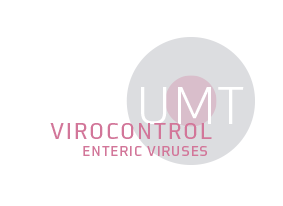
Coordination
Partners
Objectives
Since the last decades human noroviruses (GI and GII) and Hepatitis A Virus (HAV), responsible of gastroenteritis and infectious hepatitis respectively, show one of the most important impacts in terms of foodborne outbreaks in Europe and in the United States of America. To date, there are no regulatory criteria regarding the management of these enteric viruses in foodstuff in Europe.
The purpose of the Joint Technological Unit Virocontrol is dedicated to the basic and applied researches in order to better manage the viral hazard associated with the presence of noroviruses and HAV in food and their environments. These pathogens represent a main concern for regulatory bodies and industry associations. Epidemiological data, the strengthening of control measures applied for vulnerable food and the access to the detection of the genome of noroviruses and HAV in food using real-time RT-PCR since the release of the ISO 15216 standard in 2013 require now to implement new solutions and appropriate measures for a better assessment of the viral hazard in food and feed.
The Joint Technological Unit Virocontrol is located in Nancy and approved since 2017 by the French Ministry of Agriculture for five years. It joins in the continuity of the last one recently achieved (2011-2016) and the new knowledges disseminated in the scientific community, especially i) the discrimination between infectious and non-infectious particles in food using several approaches when viral genome is detected and ii) the assessment of virucidal efficiency of usual / innovative treatments at lab scale.
Actions
Development of an innovative method for estimating the infectivity of enteric viruses in foodstuff.
Elaboration of a direct or indirect approach to discriminate infectious and non-infectious particles in vulnerable foods like bivalve molluscs and fresh vegetables.
Validation of the industrial strategies of virus inactivation treatments applied in food industries at pilot scale.
Development of applied approaches to assess the virucidal efficiency of technological treatments currently used by food industries.






